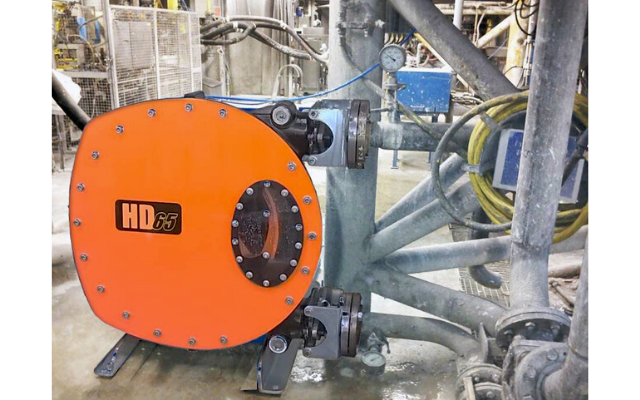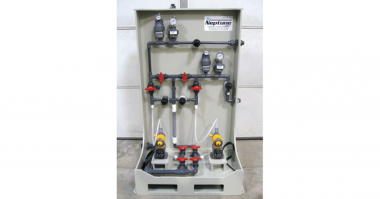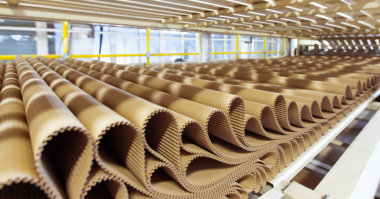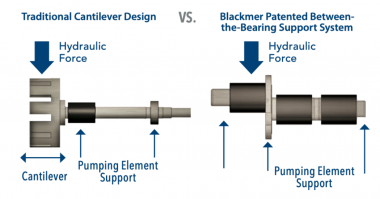Contributor: Sebastien Brosse, PSG®
No life form, whether it be human, animal or plant, can survive without water. That makes the reliable supply of clean water to homes, businesses, hospitals and industrial manufacturing facilities, among many others, of paramount importance. It also elevates the importance of a properly functioning municipal water-treatment facility.
These facilities have a twofold purpose: provide clean water to the masses and treat the fouled wastewater that they receive in return. Pumps play a significant role in wastewater-treatment operations, and over the years, many different styles and types have been used to handle impure, particulate-laden water, along with the various abrasive, corrosive and toxic chemicals that are used to clean it. There is one type of pump technology – the peristaltic (hose) pump that often outshines the others, especially when addressing the plant operator’s concerns regarding whether or not the pump is robust enough to handle the demands of a wastewater-treatment operation.
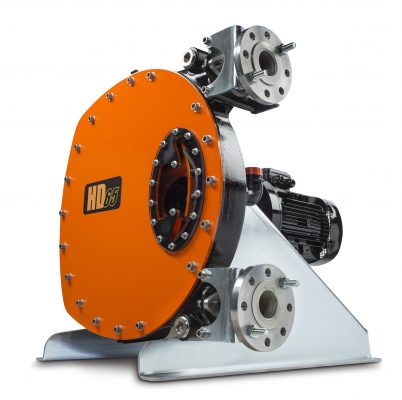 For more than 20 years, Peristaltic (Hose) Pumps from Abaque ™, a product brand of PSG ®, Oakbrook Terrace, IL, USA, a Dover company, have set the standard in transferring difficult-to-handle chemicals and fluids.
For more than 20 years, Peristaltic (Hose) Pumps from Abaque ™, a product brand of PSG ®, Oakbrook Terrace, IL, USA, a Dover company, have set the standard in transferring difficult-to-handle chemicals and fluids.
The key to the success of the Abaque pumps in handling these diverse fluid characteristics and operating conditions is the peristaltic pumping principle:
- High Performance: The pump’s seal-less design eliminates leaks and the possibility of product contamination, while providing the ability for continuous dry-run operation
without adversely affecting the pump’s performance, pressure and dosing accuracy. - Reliability: Peristaltic (hose) pump design requires none of the seats, valves and
mechanical seals that can fail on other pump styles; the pump hose is its only
replacement part. - Versatility: The peristaltic pump can successfully handle extremely abrasive and
aggressive fluids, solid-laden slurries, and water-thin, shear-sensitive and viscous
materials.
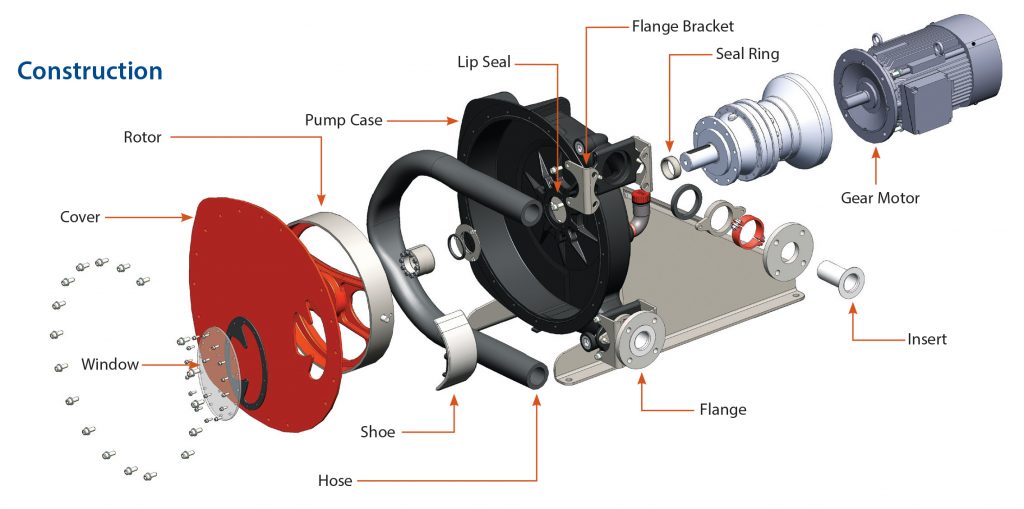 Making The Case
Making The Case
Peristaltic (hose) pumps stand out because their operation is based on the alternating contraction and relaxation of the hose, which forces the contents to move through the pump and into the discharge piping. The smooth-wall, flexible hose is squeezed between shoes on the rotor and the inside of the pump casing. This rotation moves the product through the hose at a constant displacement rate. The hose restitution after the squeeze produces an almost full vacuum that draws more product into the hose from the intake piping. The pumped product only contacts the hose and inserts, making this pumping technology very suitable for abrasive and corrosive applications.
Peristaltic (hose) pumps also maintain excellent volumetric consistency, making them ideal for the strict dosing and 24/7 operating cycles that can be required in wastewater treatment applications. Peristaltic (hose) pumps are also easy to operate and maintain, and their reversible operation allows for pumping in both directions, if needed. In order to successfully handle the challenges of wastewater treatment, the pump’s hose and inserts need to offer the highest level of material compatibility, while also being able to reliably deliver the millions of pumping cycles that are required during their lifetimes.
A critical consideration when selecting the hose material is its “fatigue resistance.” This trait defines how resistant to failure the hose material is as it runs through its millions of pumping cycles. A hose material that is susceptible to developing cracks and holes early in its operational life is not as desirable as a material that can reliably handle the demands of the repeated contraction and relaxation of the hose, especially when particulate-laden liquids are being pumped. The reinforced construction of the peristaltic hose and its use of rubber compositions (natural rubber, EPDM, Buna ® -N, etc.) that have been specially designed for the stresses within the peristaltic hose allow for the optimum life cycle and performance.
For more than two decades, peristaltic (hose) pump technology – as epitomized by the standard-setting operation of the Abaque Peristaltic (Hose) Pump family – has proven to offer the performance and reliability that can make it a first-choice pumping option for wastewater treaters who crave highly reliable, environmentally friendly, low-maintenance pump operation.
About the Author:
Sebastien Brosse is Team Leader Abaque ™ and can be reached at sebastien.brosse@psgdover.com. Abaque is a product brand of PSG ® , a Dover company, Oakbrook Terrace, IL, USA. Abaque pumps are manufactured at PSG’s Auxerre, France, facility and supported through its Mouvex ® Americas facility in Grand Terrace, CA, USA. For more information on Abaque’s full line of peristaltic (hose) pumps, please go to psgdover.com.

